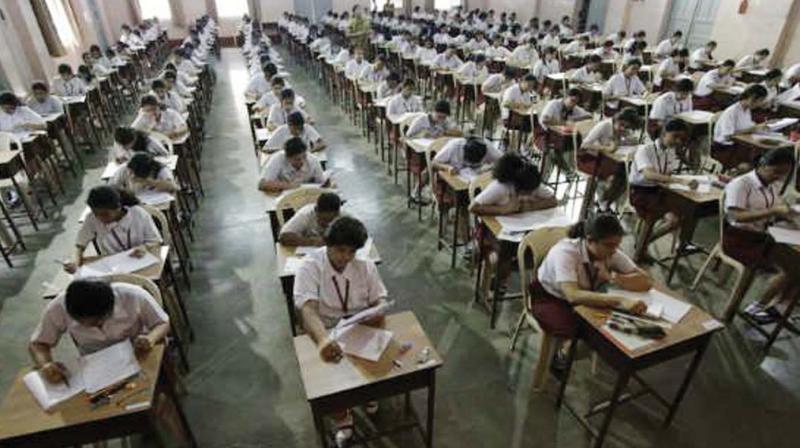Hyderabad: Muslim groups against song and dance in schools
They welcomed most of the proposed initiatives but expressed certain reservations on the inferences of the policy.

Hyderabad: Muslim groups are critically reviewing the National Education Policy (NEP) 2019. Many groups have prepared their opinions and resolved to submit their views to the
ministry.
They welcomed most of the proposed initiatives but expressed certain reservations on the inferences of the policy. Theologians opposed the idea of encouraging learning music and dance in educational institutions, while intellectuals felt there are many anomalies and discrepancies in the draft. They defended the policy on the medium of instruction as it stressed that the preferred medium of education should be the students’ mother tongue.
The general perception is that madarsas, maktabs and other religious bodies of education will have to be registered as trusts or societies and that the government will support the mainstreaming of homeschooling modules, which seems to be a great stride forward.
There is an apprehension that the government could stress the introduction of modern education in Madarsa in order to help them meet their desired learning outcomes. Muslim educationists assert that the definition of desired learning outcomes must be clarified to ensure that the outcomes set forth by the government do not infringe the religious tenants followed by the Madarsas.
Muslim groups are afraid that music and yoga will be made mandatory to learn in school, primarily because it contradicts their religious beliefs.
Moulana Mufti Umar Abideen said, “Office-bearers of the Madarsa Board, an umbrella of Islamic institutions, have gone through the draft policy and prepared their concerns, which will be presented to the Ministry of Human Resource Development. He said the government should convene a special meeting with the managements of religious institutions before finalising the policy. “In addition to the present Madarsa curriculum, we are enthusiastic about introducing mathematics and sciences up to the secondary level, thereby enabling our students to take up their preferred streams in college,” he added. He further said that the choice of education and its field depends largely on students and parents. Parents of the students in Madarsa institutions do choose either only religious education or both religious and secular education. This choice should be respected, he said.
Moulana Umar Abideen said that Madarsas are being run mostly on the contributions from philanthropists, with a focused objective of religious and moral education. In cases where Islamic subjects are minimised at the expense of other subjects, it will be against the will and ambition of the fund providers. A fine balance in both secular and religious subjects should therefore be maintained in line with the students’ interests.
He suggested that the common tests prescribed by the National Board of Assessment (NIOS) for grades 3, 5 and 8 should not be applied to madrasa students since the total time frame of education, academic sessions, periods allocated to each subject, etc. in the madrasa system are different from regular schools and colleges.
Mr M.S. Farooq, General Secretary of the Telangana and Andhra Pradesh chapter of the All India Muslim Educational Society said the omission of secular principles in the draft NEP 2019 impoverishes the learning experience of all Indians.
Careful scrutiny reveals an issue deserving a wider, most heated opposition. The words “secular” or “secularism” are not found anywhere in it. The NEP is expected to reset the government funding policy on education, the structure of school education, the curriculum design for school and higher education, and the nature of teacher training and recruitment among others. A clear, unequivocal commitment to secular education, however, is vital for the ambitious reform proposals, he opined. He said private unaided schools had been exempted from forming any school management committee under RTE Act’s section 21(1) and if this provision was not removed from Para 7.7.7, Para 7.7.5 and Para 8.3.5, it will be not only against the spirit of Article 19(1) of the constitution on the fundamental right to occupation and the judgment of Apex Court in the TMA Pai case of 2002 which laid down the principle that private unaided schools’ managements have to have autonomy in running their schools but also against the CBSE’s affiliation bye-laws 2018, the CISCE Board’s affiliation bye-laws, and the Societies Registration Act.
Dr Fakhruddin Mohammed, Honorary Secretary, MESCO, said the ministry of human resource development should prepare a draft in Urdu as well. He said that the draft of NEP 2019 is at present available in English and Hindi only. He said that the general public has been allowed until July 31 to share their views on the draft policy and that careful scrutiny of the 484 pages of the draft will most likely take longer than that, and urged the government to extend the deadline for submission of comments and suggestions for two more months.

